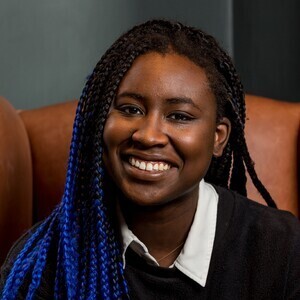You are viewing your 1 free article this month. Login to read more articles.
Reaching further
If I was going to sum up the findings in this issue with one word, it would be “disconnect”.

If I was going to sum up the findings in this issue with one word, it would be “disconnect”. The breadth and luminosity of books due to be published in the next 12 months contrasts with bleak findings in our Lead Story about such books not finding their way to readers, hinting at a—yes—disconnect between what publishers are buying, and what readers are.
While industry measures that look at the representation of Black writers tend to focus on the total output, what they don’t tell us is how these titles land, and whether expectations are being matched by marketing and publicity spend
While the former may hurry to acquire books by Black writers (and there is still an emphasis on “may”), does that vigour run all the way through the publication process? While industry measures that look at the representation of Black writers tend to focus on the total output, what they don’t tell us is how these titles land, and whether expectations are being matched by marketing and publicity spend.
I have curated the preview of Black authors for the past three years. The first time, it was a mammoth task—there were, thrillingly, so many titles. The second year, decidedly fewer. This year, it’s heartening to see the number and quality of submissions becoming closer to the epic first year. Sifting through them was incredible—fantastic stories, new names and older ones, diversity of subject matter and format.
I write in this year’s preview that I feel optimistic—there’s fertile ground, there’s a fecundity and there are also spaces and bodies opening up to support writers at all stages of their development. To date, several publishers, including Bloomsbury, Hachette, HarperCollins, Penguin Random House and Simon & Schuster, have collectively pledged £100,000 on a rolling annual basis towards the efforts of one such group, the Black Writers’ Guild.
In our interviews with three Black authors, they discuss collaborating and working with publishing figures to produce works of art: Kelechi Okafor praised the effect editor Sareeta Domingo had in refining her work; Malachi McIntosh had his first “hopeful” editorial conversation with publisher Emma Dai’an Wright, while working on what became his short story collection; and Stacey Thomas won mentorship from writer Clare Mackintosh and HarperCollins’ inaugural Killing It Competition for Undiscovered Writers to get her début novel, The Revels, over the line.
So the input is looking promising, but the output—how the books are reaching and landing with readers—has some way to go. As Afrori Books founder and British Book Awards Individual Bookseller of the Year Carolyn Bain says, “Black authors don’t get the same platforms and experiences that their white peers get”. We are in the business of books, so our concern needs to be marrying up all elements of book production and publication with the end target: the reader. We know they want these stories, we are waking up to how to find them, now what we need to do is make sure we are getting these stories to them.














